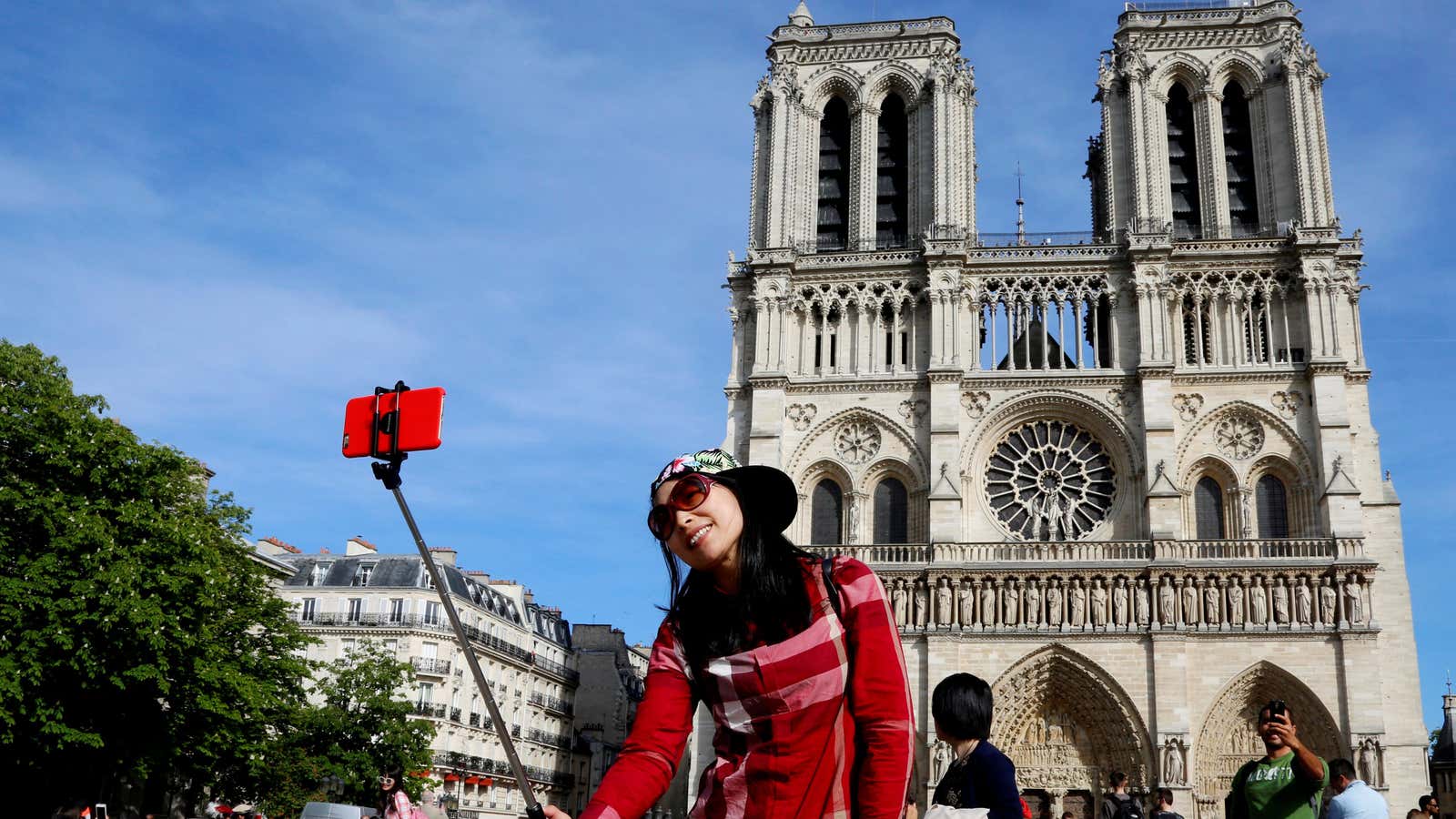Enthusiastic Chinese tourists could be in for their best year yet.
China has climbed 10 spots to rank at 75th place in the latest Henley Passport Index, an annual passport ranking by citizenship planning firm Henley and Partners. Published on Jan. 9, the research is based on data from the International Air Transport Association and its own research. According to the index, the ranking is China’s highest since 2008. Its lowest rank in the last 10 years was in 2015, when China ranked in 94th place. Chinese tourists can now travel to 60 countries without a visa, according to Henley.
This includes the newly added United Arab Emirates, which will no longer require visas (link in Chinese) for them from Tuesday (Jan. 16). (A separate ranking by financial advisory firm Arton Capital, which provides real-time updates, noted that China added 7 nations that offer visa-free and visa-upon arrival in 2017.)
Chinese tourism overseas has become a major force in recent years. And while Europe and South Korea, have long been preferred destinations, countries that have liberalized travel for Chinese nationals have reaped rewards. For example, Chinese tourists flocked to the African country Morocco during the week of National Day holidays in October 2016 not long after Morocco stopped requiring visas for Chinese tourists earlier that year. Chinese tourists spent a total of around $110 billion overseas in 2016 (link in Chinese)—a 5% increase from a year earlier, according to China Tourism Academy, a Beijing-based research institute.
Unusual destinations are growing too. The number of Chinese tourists to Antarctica—where no visa is required—has grown 40 times from 2008 to 2016, and it could cost could at least $5,000 per trip.
But Chinese tourism can be a fickle source of revenue to count on, and frequently dances to government tunes. In 2017, Beijing’s decision to boycott Seoul’s tourism industry over its decision to install a US-made antimissile system cost South Korea some 7.5 trillion won ($6.8 billion). China has been the largest source of foreign tourists to South Korea since 2013.
Some in China think the country’s passport, issued by the world’s second-largest economy after all, still isn’t getting its due. “Actually the number of countries which have visa-exempt policies to China doesn’t match China’s international standing and power, even Taiwan has more than a hundred visa-free access countries,” commented one (link in Chinese) on microblog platform Weibo. Others are asking why more advanced economies (link in Chinese) don’t appear on the list of countries most welcoming to China.
